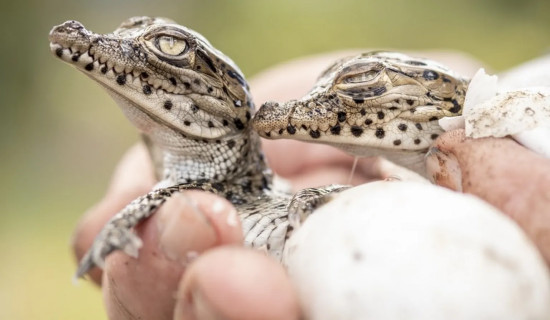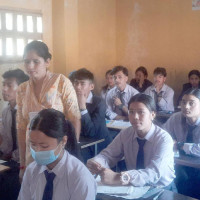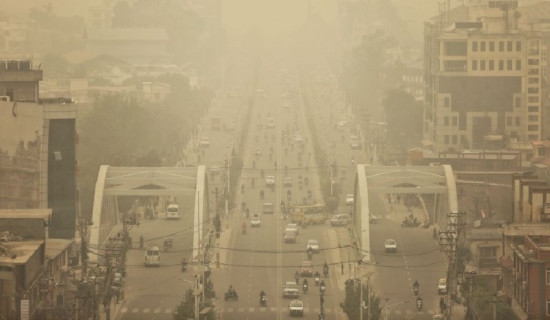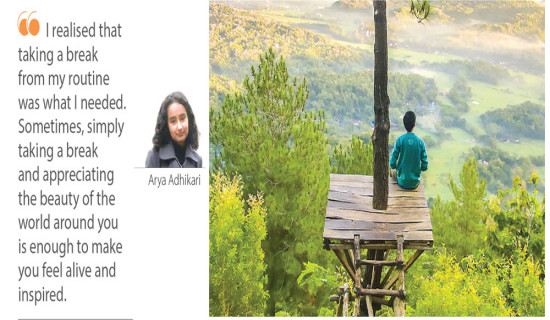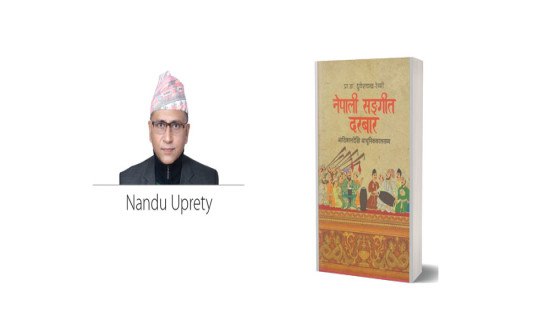- Friday, 26 April 2024
Ghariyal Hatchlings After Two Decades
By Manoj Paudel
The gharial crocodile, considered rare, has produced hatchlings in the Karnali River for nearly two decades. This year, 28 hatchlings have been seen in the Khauraha river towards Geruwa from Karnali. This is considered to be the first sign of successful construction of this Karnali waterway after 17 years. Earlier, Ghariyal hatchlings were spotted in 2062 BS in Karnali.
Breeding Ground
A week ago, Bardiya National Park staff and villagers, who live nearby, found a successful crocodile breeding ground and breeding ground for the first time on the park's premises. They counted 28 hatchlings in the Geruwa River, a tributary of the country's longest river, the Karnali. Bishnu Shrestha, a warden of the park said, "The staff at the park used to go there for regular monitoring and saw the crocodiles there." We used to take photos for fun.

"We used to keep it on record," he said. 3-4 weeks ago, Ghadiyal showed signs of aggression. I felt as if I was in a trance. Then it was believed that they must have laid eggs. There is a hattisar near the park's headquarters. He said that regular monitoring was done from there. We adopted security vigilance. "We were happy to see the baby a week later," he said. "It is a good piece of news for the last two years to create an environment where water flows towards the Geruwa area".
Ramesh Thapa, a former warden of Bardiya National Park, said that the low water level and non-flooding river would be suitable for gharial breeding.
"After 072 BS, we created an environment where water can be drained systematically in the gorge at Geruwa in Karnali," he said. He said that the river has now become the clock minister. He said that now it should be made a place to give birth to a baby in a natural environment.

Similarly, Ghadiyal gave birth to 30 babies in Dhanush near short Khola Post, the source of the Babai River in Bhakharai National Park. Similarly, 50 babies have been born at the Ghadiyal Breeding Centre in the park this year. This is the first time that a child has been born in a fertility centre after 7 years.
It is very difficult to avoid crocodiles in natural habitats. Successful breeding of crocodiles is a challenge even in artificial habitats due to the lack of males and technical issues. At least 200 children a year come out of natural habitats across the country. However, crocodile experts say that only one per cent and at most 10 per cent of these may have been saved.
The floods are overflowing, they are not dying, but the children who have been left out of their mother's care have become the food of others," said Dr Rabin Kadariya, head of the National Trust for Nature Conservation, Bardia. Kadariya said the crocodile lives only in clean water. Its habitat has been affected due to pollution. He says that avoiding the crocodile is a sign that the environment is right.

Conservation and breeding programmes for this species have been conducted in Nepal since 1978. As there are less than 80 crocodiles in the country, a crocodile conservation and breeding centre was established near Kasara in Chitwan National Park in 2035 BS. In its natural habitat, crocodile eggs were collected and brought to the centre. In 2040 BS, crocodiles were kept in Bardiya National Park as a rescue centre. In the same year, 25 crocodile eggs were taken from the Babai river. In 2010, 10 gharials were released from Chitwan.
Rare Species
The crocodile is a rare endangered species. This creature, which can live in both water and land, often builds a nest in the sand to get out of the water to warm the sun and lay eggs. A female crocodile lays eggs at the age of 15. After digging the hole and laying eggs, she keeps it full, but the mother keeps on monitoring it regularly.
The mother who is a little stronger and more aggressive is responsible for taking care of the baby regularly. Birds, large fish, and crocodiles feed on baby crocodiles. Babies need a strong, agile, and aggressive mother to keep them from being fed. One does such work. One or two other mothers also live nearby.
However, it is difficult to prevent floods when they are young. The crocodile lays its eggs by dropping 50-60 cm sand at a distance of 1 to 5 metres from the place where there is water. The egg is again filled with sand and cared for in the water near the mother. From 75 to 100 days after laying, the baby hatches. The mother protects the baby for
Crocodiles are in crisis due to environmental pollution in the river. That is why the work has been started by making a crocodile conservation action plan (2018-2022). The plan states that the construction of large dams for irrigation and electricity is one of the major threats.

Conservationist Ram Shahi said that the dam would not only hinder the migration of crocodiles and other aquatic species, but also the crocodile's nest and habitat. He said that the disposal of domestic and industrial sewage and chemical waste from cement, rubber and other manufacturing plants is also making the clock tick.
In some cases, crocodiles have died after falling into fishing nets set up by riverbanks. Experts say that locals are eating crocodile meat and even eggs, which has further endangered the species. There are 98 crocodiles of different ages in the Narayani, Rapti, Babai and Karnali rivers.
The crocodile on the protected list in the Wildlife Act lives for 70 to 80 years. The Gharial crocodile, which is considered rare in the world, is found only in Nepal and India. In natural habitats, crocodiles hunt and eat fish themselves.
The crocodiles inside the breeding centre are also fed fresh fish. There are about 600 adult crocodiles in Nepal and India. The species has disappeared from Myanmar and Pakistan. In Bangladesh and Bhutan, gharials are found in zoos only.
(Paudel is a photojournalist who writes about birds, bio-diversity and wildlife)
How did you feel after reading this news?



